Student Success & The Northern Experience
Our one-year Companion Animal Physical Rehabilitation graduate certificate program for veterinary technicians will give you the critical skills you need to work in specialized patient care. This program addresses the patient needs and demonstrates the pivotal role technicians play in improving the quality of life for pets.
Does this program sound like a good fit for you?
Connect with us to learn more.
Course Information
Semester 1
This foundational course provides an in-depth overview of the principles, goals, and applications of animal physical rehabilitation, with a focus on companion animals. Students will explore the history and scope of the field, the role of the Registered Veterinary Technician (RVT) in the rehabilitation team, and the legal and ethical considerations involved in practice. The course introduces common orthopedic and neurological conditions that benefit from rehabilitation.
28 Hours
This intensive, hands-on module provides students with immersive practical experience in companion animal physical rehabilitation. Delivered over five days, students will participate in live patient assessments and treatments, integrating clinical skills and theoretical knowledge. Activities begin with an introduction to the college environment, a site tour, and foundational wet labs using therapeutic modalities on animals. Subsequent days focus on applied anatomy and physiology, patient assessment, and therapeutic technique implementation, with continued exposure to physical rehabilitation modalities.
40 Hours
The student would learn how to conduct a neurological and orthopedic examination on dogs in order to assess gait, posture and movement. Topics would include assessing range of motion and assigning a lameness score. A review of the importance of palpation in order to detect swellings and lumps will be emphasized. Videos or live demonstrations will be used to demonstrate normal and abnormal canine gaits.
56 Hours
Through weekly instructor-led meetings, the Companion Animal Rehabilitation Seminars engage in discussions and explore key questions within the program. The course will cover advances in the Companion Animal Rehabilitation industry, and sharing real-world case studies, fostering a collaborative learning environment. This seminar aims to equip students with comprehensive knowledge and practical skills essential for a successful career in animal rehabilitation.
28 Hours
Focusing on canine anatomy and physiology including directional terminology, anatomic planes, bones, muscles, joints, ligaments and tendons, the nervous system and lymphatics, this course will be, an in-depth study requiring students to name and explain the function of the components of the skeletal and muscle systems, including, muscle origins and insertions, muscle function and muscle innervation and blood supply.
70 Hours
This course provides an in-depth introduction to therapeutic modalities used in companion animal physical rehabilitation. Students will explore the history, scientific basis, and practical applications of various modalities, including massage therapy, laser therapy, ultrasound, electrical stimulation, hydrotherapy, and emerging techniques. The course emphasizes evidence-based practice, ethical considerations, and the integration of multiple modalities for optimal patient outcomes.
70 Hours
This course reviews the various modalities available for canine physical rehabilitation. These include techniques such as stretching, strengthening and proprioception exercises, application of heat and cold packs, analgesics and massage.
70 Hours
This foundational course provides an in-depth overview of the principles, goals, and applications of animal physical rehabilitation, with a focus on companion animals. Students will explore the history and scope of the field, the role of the Registered Veterinary Technician (RVT) in the rehabilitation team, and the legal and ethical considerations involved in practice. The course introduces common orthopedic and neurological conditions that benefit from rehabilitation.
28 Hours
This intensive, hands-on module provides students with immersive practical experience in companion animal physical rehabilitation. Delivered over five days, students will participate in live patient assessments and treatments, integrating clinical skills and theoretical knowledge. Activities begin with an introduction to the college environment, a site tour, and foundational wet labs using therapeutic modalities on animals. Subsequent days focus on applied anatomy and physiology, patient assessment, and therapeutic technique implementation, with continued exposure to physical rehabilitation modalities.
40 Hours
The student would learn how to conduct a neurological and orthopedic examination on dogs in order to assess gait, posture and movement. Topics would include assessing range of motion and assigning a lameness score. A review of the importance of palpation in order to detect swellings and lumps will be emphasized. Videos or live demonstrations will be used to demonstrate normal and abnormal canine gaits.
56 Hours
Through weekly instructor-led meetings, the Companion Animal Rehabilitation Seminars engage in discussions and explore key questions within the program. The course will cover advances in the Companion Animal Rehabilitation industry, and sharing real-world case studies, fostering a collaborative learning environment. This seminar aims to equip students with comprehensive knowledge and practical skills essential for a successful career in animal rehabilitation.
28 Hours
Focusing on canine anatomy and physiology including directional terminology, anatomic planes, bones, muscles, joints, ligaments and tendons, the nervous system and lymphatics, this course will be, an in-depth study requiring students to name and explain the function of the components of the skeletal and muscle systems, including, muscle origins and insertions, muscle function and muscle innervation and blood supply.
70 Hours
This course provides an in-depth introduction to therapeutic modalities used in companion animal physical rehabilitation. Students will explore the history, scientific basis, and practical applications of various modalities, including massage therapy, laser therapy, ultrasound, electrical stimulation, hydrotherapy, and emerging techniques. The course emphasizes evidence-based practice, ethical considerations, and the integration of multiple modalities for optimal patient outcomes.
70 Hours
This course reviews the various modalities available for canine physical rehabilitation. These include techniques such as stretching, strengthening and proprioception exercises, application of heat and cold packs, analgesics and massage.
70 Hours
Semester 2
The pathophysiology of pain is covered in depth in this course. Pain sensation, transduction, transmission and perception are discussed, together with ways by which pain pathways can be interrupted. The complementary role of analgesics in contributing to successful companion animal rehabilitation is explored. Students learn about the benefits and risks of specific analgesics that a veterinarian may prescribe to companion animals.
28 Hours
This field placement provides students with supervised, hands-on experience in a professional rehabilitation setting. Students will apply their knowledge of various rehabilitation techniques, assess patient conditions, implement treatment plans, and refine their clinical skills in real-world scenarios. Emphasis is placed on specialized therapeutic modalities, including Laser Therapy, Hydrotherapy/Aquatherapy, Therapeutic Ultrasound, Pulsed Electromagnetic Field Therapy, Electrical Stimulation Therapy, and Shockwave therapy.
200 Hours
Through weekly instructor-led meetings, the Companion Animal Rehabilitation Seminars engage in discussions and explore key questions within the program. The course will cover advances in the Companion Animal Rehabilitation industry, sharing and presenting real-world case studies, and fostering a collaborative learning environment. This seminar aims to equip students with comprehensive knowledge and practical skills essential for a successful career in animal rehabilitation.
28 Hours
The pathophysiology of common neurologic and orthopedic conditions is covered. Conditions that accompany ageing in canines are covered in detail. Common therapies that may be used in the rehabilitation of each condition will be discussed and students will design physical rehabilitation protocols and treatment schedules based on individual case details.
42 Hours
The pathophysiology of pain is covered in depth in this course. Pain sensation, transduction, transmission and perception are discussed, together with ways by which pain pathways can be interrupted. The complementary role of analgesics in contributing to successful companion animal rehabilitation is explored. Students learn about the benefits and risks of specific analgesics that a veterinarian may prescribe to companion animals.
28 Hours
This field placement provides students with supervised, hands-on experience in a professional rehabilitation setting. Students will apply their knowledge of various rehabilitation techniques, assess patient conditions, implement treatment plans, and refine their clinical skills in real-world scenarios. Emphasis is placed on specialized therapeutic modalities, including Laser Therapy, Hydrotherapy/Aquatherapy, Therapeutic Ultrasound, Pulsed Electromagnetic Field Therapy, Electrical Stimulation Therapy, and Shockwave therapy.
200 Hours
Through weekly instructor-led meetings, the Companion Animal Rehabilitation Seminars engage in discussions and explore key questions within the program. The course will cover advances in the Companion Animal Rehabilitation industry, sharing and presenting real-world case studies, and fostering a collaborative learning environment. This seminar aims to equip students with comprehensive knowledge and practical skills essential for a successful career in animal rehabilitation.
28 Hours
The pathophysiology of common neurologic and orthopedic conditions is covered. Conditions that accompany ageing in canines are covered in detail. Common therapies that may be used in the rehabilitation of each condition will be discussed and students will design physical rehabilitation protocols and treatment schedules based on individual case details.
42 Hours
Career Ready Graduates
Articulation Agreements
A number of articulation agreements have been negotiated with universities and other institutions across Canada, North America and internationally. These agreements are assessed, revised and updated on a regular basis. Please contact the program coordinator for specific details if you are interested in pursuing such an option.
Work Integrated Learning Opportunities
Students in the Companion Animal Physical Rehabilitation program participate in a field placement, gaining hands-on experience in real-world settings such as veterinary clinics, rehab facilities, or wellness centres. These experiences, guided by industry professionals, help students apply their skills, build confidence, and make valuable professional connections.
- Perform patient examination and collect data on vital signs on patients needing physical rehabilitation.
- Restrain and manage small animal patients in clinical situations where physical rehabilitation is required.
- Administer medications by common drug routes and prepare pharmaceuticals as prescribed by the veterinarian for patients undergoing physical rehabilitation therapy.
- Produce standard diagnostic radiographs on patients requiring physical rehabilitation.
- Collect and process samples of diagnostic laboratory work on patients requiring physical rehabilitation.
- Perform common veterinary diagnostic tests, such as blood chemistries, differentials, culture and sensitivities, and ECGs on patients requiring physical rehabilitation.
- Perform basic veterinary practice management including computer applications.
- Using techniques such as “pain scoring”, recognize and evaluate painful conditions from which the veterinarian may prescribe physical rehabilitation therapy.
- Counsel clients especially in the area of pet nutrition for patients requiring physical rehabilitation.
- Perform functions to enable the patient’s optimal physical function by contributing to the development, implementation, and modification of intervention/treatment plans, under the supervision of and in collaboration with the veterinarian.
- Perform effectively within the roles and responsibilities of the physical rehabilitation technician through the application of relevant knowledge of veterinary sciences, and animal health conditions.
- Practice competently in a legal, ethical, and professional manner within the role of the companion animal physical rehabilitation technician.
Career Opportunities
Graduates may choose to establish their own physical rehabilitation business, working in collaboration with referring veterinarians and other animal health professionals. Alternatively, they can pursue employment in veterinary clinics with rehabilitation services, private rehab facilities, or organizations focused on animal conditioning and fitness.
Explore labour market information for related careers and employment trend data from the Government of Canada Job Bank.
Accreditation
The OAVT accredits this program for 20 continuing education credits in Category 1 (Medical/scientific).
The Veterinary Science Centre and our Veterinary Technician program are accredited by:
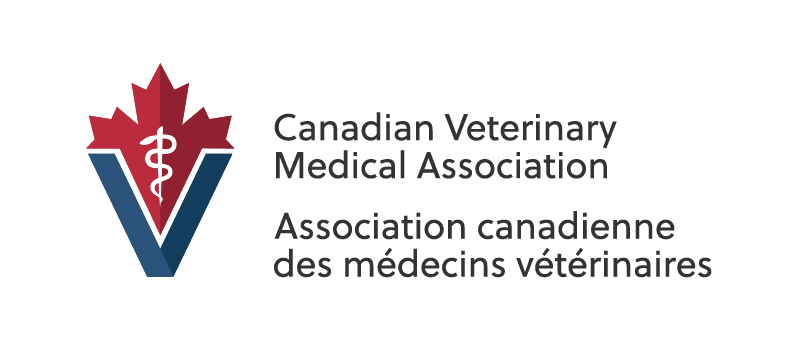
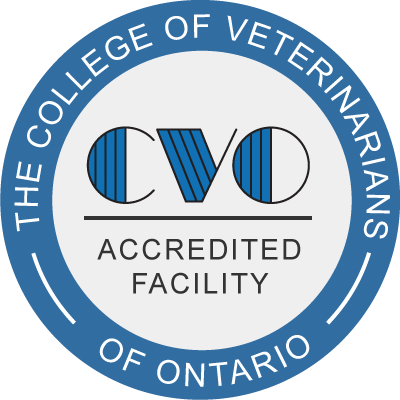
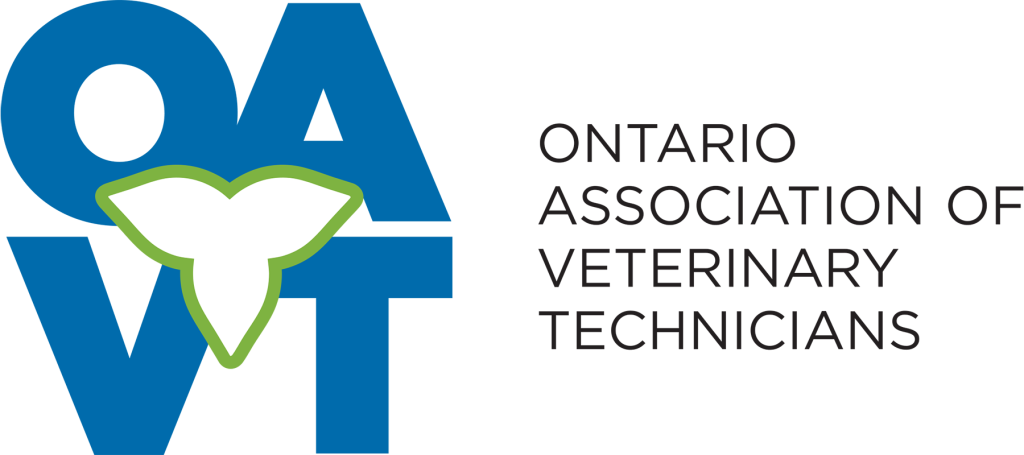
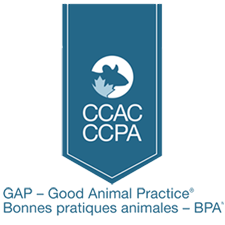
Admissions Information & Requirements
Admission Requirements
- Graduate of a Veterinary Technician/Technology program.
Program Specific Requirements & Additional Information
- Companion Animal Physical Rehabilitation Requirements [PDF, 305 KB]
- Proof of rabies vaccination, showing a current protective titre.
Important Information for Applicants
This program is a graduate certificate available to graduates of a Veterinary Technician/Technology diploma program. If applying directly from high school, please choose our Veterinary Technician (H058) program. Once you graduate from a Veterinary Technician program, you will qualify to apply for our Companion Animal Physical Rehabilitation program.
Tuition, Fees & Payments
The tuition and fees information is typically updated yearly for the upcoming Academic Year in May. The amounts are for the full academic year.
Amounts may be based on last years tuition and fees and are subject to change.
If you are a current student, please refer to your Student Account or see a Student Services Clerk for the most up-to-date information.
Tuition
Domestic: $3,481.87
International: $14,813.46
Ancillary Fees
Ancillary fees vary by campus and support aspects of your experience as a Northern College student, such as Student Associations, Athletic Facilities, and Health Benefits.Ancillary fees are paid in full for the entire academic year in the first semester.
Please see Detailed Ancillary Fees for more information.
| Ancillary Fees by Campus (2024-25) | Domestic | International |
| Haileybury (HL) | $976.50 | $1,589.00 |
Find Your True North.
At Northern College, you’re a part of a community.
From your teachers to support staff and administrators, we are all here to help you get an education and make some lasting connections along the way.
Your success is incredibly important to you, so we provide student supports to help you achieve your goals. From study assistance and accessibility services to mental health supports and financial aid, we’ve got you covered.
Each of Northern’s campuses boasts exercise facilities, a gym, cafeteria, study areas and a library – places that you can go to help keep you focused as you work your way through your studies. The communities we call home are incredible places, filled with amazing people and things to do.
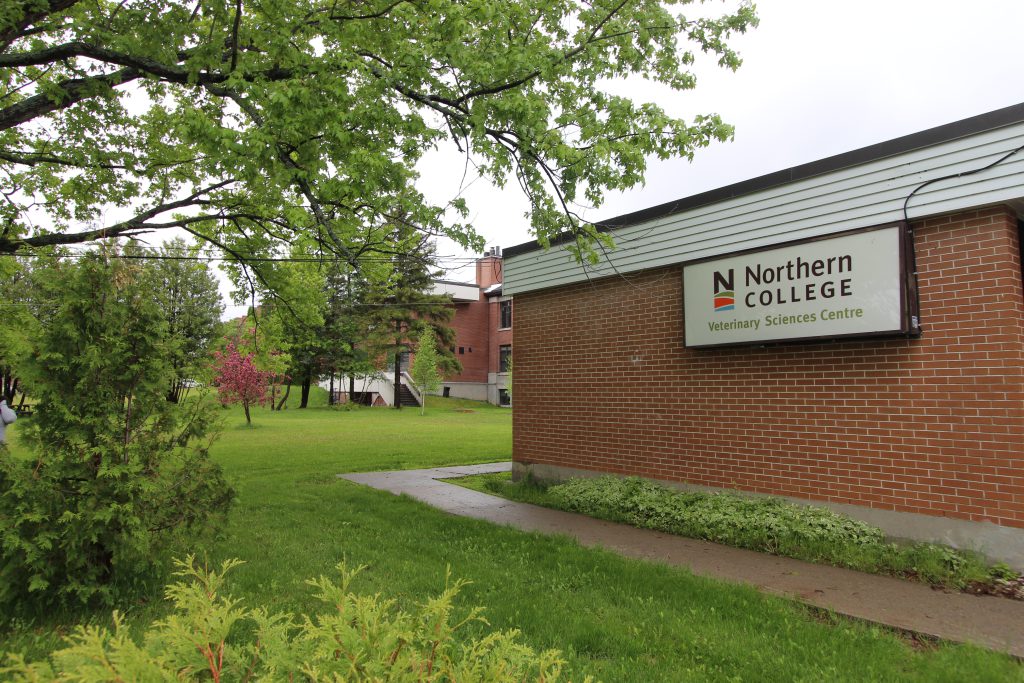
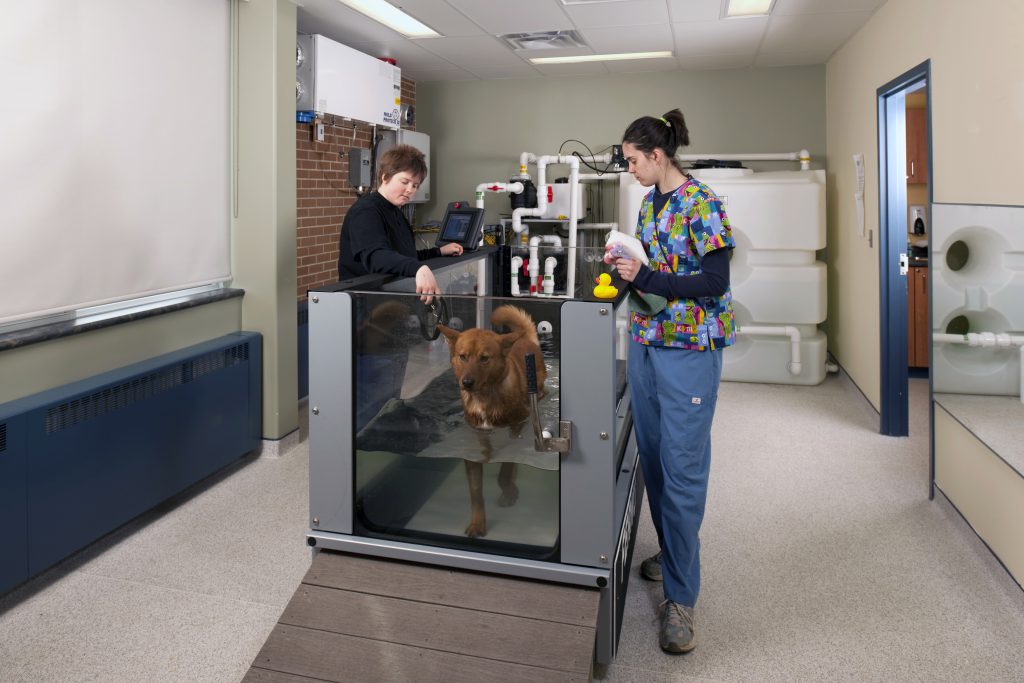
Does Northern College sound like a good fit for you?
Here’s how to take your first steps on your new exciting and rewarding career path.
